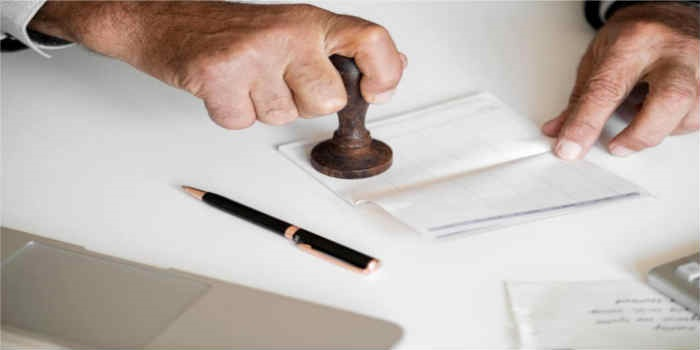Introduction
Are you familiar with what is a notary? A notary is an unbiased public servant commissioned to act in such a capacity. Real estate deeds, wills, trusts, bills of sale, affidavits, powers of attorney, and other legal transactional papers typically require the services of a notary public. The primary function of a notary is to prevent forgery. A notary public is a state-appointed official who can attest to the validity of documents by witnessing signatures and conducting other forms of due diligence.
What is a Notary?
What is a notary public? Deeds, estates, licenses, powers of attorney, affidavits, and trust documents are typical examples of legal documents requiring a notary, often known as a notary public. Notaries are public officials commissioned by their government to act as impartial witnesses to the signing of legal papers and to attest to the authenticity of those documents. Notarizing legal papers is an extra layer of security for the buyer and seller in financial transactions.
Notaries must check all signatories' identities to verify the validity of documents and prevent fraud. A notary is a public official who is an intermediary between the public and the government. A court might appoint notaries, a state government, or a regulatory organization like a faculty of notaries public. Notaries are public servants who are not paid by the government but must rely on fees for their services.

What Does a Notary Do?
A notary's primary responsibility is to ensure that all parties to a contract can have faith in the legitimacy of the documents they are signing. All necessary conditions for notarizing legal documents must be met. A stated promise, original signatures from all parties, and picture identification of all signatories are all necessities. Let's say a notary examines the document and finds it in order. In such a circumstance, the document receives a notarial certificate, and the notary's seal is affixed. A notary can refuse to authenticate a legal document if it does not fit the criteria or if the identification of the involved parties is unclear.
What Are Notarized Documents?
A notary public is an impartial third party who can attest to the authenticity of a document. The notary must ensure that no fraudulent or coerced signatures appear on any documents they certify. When notarizing legal papers, the notary must make several checks, including:
Identity of the Persons Appearing Before the Notary
The notary public is obligated to ensure the signers of a legal document are who they claim to be, either by personal knowledge or by referring to government-issued identification documents. When everyone is satisfied, their information is entered into a notarial register, also known as a protocol.
Sound Mind
Before and during the signing of any documents, the notary should ensure that all parties involved are of sound mind and fully understand what they are signing. The signer must be of sound mind and not under the influence of drugs or alcohol.
Adult Age
The notary public must ensure that the document's signer is at least eighteen years old and legally capable of entering into a contract. If any of the signers are under the age of 18, the notary cannot notarize the document.
Willing Signers
The notary public is obligated to ensure that the signers are of legal age, have the requisite mental capacity, and are not being coerced into signing any documents. One or both parties may be coerced into signing the paper if they are not doing it voluntarily.
How to Become a Notary
How one can qualify as a notary public changes from one state to another. Notaries generally need to be at least 18 years old and legal residents of the state where they are commissioned. The fees associated with becoming a notary are varied and include tuition, materials, a bond, and the oath of office. If a notary is found to be providing legal advice, they face a fine. Furthermore, they are forbidden from intervening in matters in which they have a bias or self-interest.

Conclusion
You have gained an understanding of What is a notary and what do they do. For millennia, notaries have played a crucial role in administration and law. Notaries have been around for a long time to ensure that information presented is reliable, from recording harvests to validating documents and signatures online. It's important to note that notaries can be found in every jurisdiction. You may have a neighbor who is also a notary. Suppose you reside in a rural area or otherwise lack access to a notary. In that case, you may be relieved to learn that several states have passed laws making it easier to have documents notarized using remote technology.



